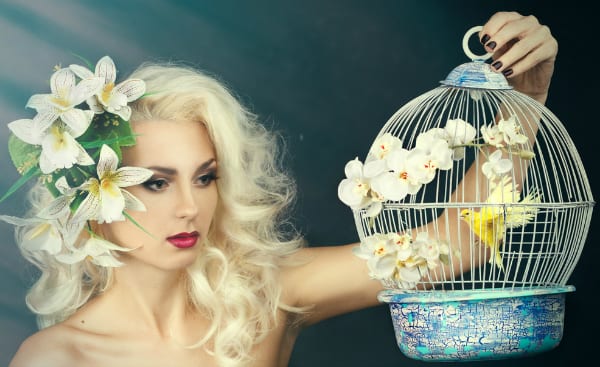Birds as omens: divination the Ancient Greek way
Birds as omens: divination the Ancient Greek way
Birds as omens: divination the Ancient Greek way
-
Hannah
-
Hannah

In Ancient Greek mythology, Asbolus, the centaur, was a seer. He had a particular way of predicting the future: he read omens in the flights and songs of birds.
This is called ornithomancy (from the Greek ornis for bird and manteia for divination), and it was taken seriously by the Ancient Greeks. In Homer’s the Odyssey, a seer predicts the arrival of Odysseus based on seeing an eagle fly overhead to the right three times (the dead dove it was carrying, apparently, was an omen of Odysseus’s wife’s suitors meeting their end).
For the Ancient Greeks, birds were also rich in symbolism. The dove symbolised love and fertility; it was associated with Aphrodite. The crow or raven was the messenger of the gods, and it symbolised bad fortune. (Originally, the raven was white. But when the god Apollo sent it to spy on a lover, and the bird returned with the news the lover was cheating on him, Apollo flew into a rage and scorched the raven black all over.) Athena, goddess of wisdom, was usually depicted with a small owl, which was how we came to see the owl as a ‘wise old bird’. Zeus, meanwhile, had an eagle, the Aetos Dios, which was the emblem of his war standard, signifying strength, power and sovereignty.
In my novel Aphrodite’s Tears, I was inspired by the Ancient Greeks to weave in some bird symbolism of my own.
The heroine, Oriel, is an Englishwoman whose archaeological career has brought her to the Greek island of Helios. She is to stay at Heliades, the home of the leader of Helios, Damian; a beautiful home, certainly, but Oriel has a shock when she is shown to her bedroom:
Oriel moved further into the room towards the window, and only then did she notice the golden cage hanging from a beam in the far corner. Inside, a canary suddenly chirped and fluttered nervously as she approached.
Oriel gasped and froze for a second. Ever since childhood, when she had seen a bald eagle snatch a goat, its talons ripping into the kid’s back while it bleated a desperate call, she had been wary of birds of any kind. It hadn’t helped that her nanny used the event as a warped cautionary tale: ‘The eagle will snatch you up if you don’t do it now …’. And now, anything about birds – their fluttering wings, gleaming eyes, hard beaks and ugly, curved claws – filled her with dread.
Once Oriel snaps out of her shock she realises that the bird is just a little canary, happy and songful, and decides that she must quash her unease. Soon, when she awakes in the morning she finds the chirping of the canary doesn’t bother her so much.
But then, one evening, Oriel comes across more birds – many more birds – at Heliades. She has been invited to dine with Damian’s cousin, the infirm Helena, and when Oriel walks out onto the enclosed terrace of Helena’s apartment, she encounters a scene unlike any she has seen before:
Dressed in a scarlet evening gown, Oriel’s hostess was waiting for her on an enclosed terrace, sitting in a damask-silk-covered chair at the dining table. The place was shady, the branches of lemon trees extending high over one side of the terrace. Oriel hardly took in her surroundings, though, and instead smothered a gasp. Everywhere … everywhere … there were cages of birds: they rested on tables, on pedestals and stands. Even the yellow fruit that hung like little lanterns from the branches of the trees had to make space for ornamental cages full of twittering coloured birds, which every now and again flew at the curving bars of their prisons, beating their delicate wings against them.
Oriel is not charmed by the sight of the birds. All these tiny creatures, longing to be free; to entrap them like this… it seems cruel. Like a mortal playing god.
To Helena, the birds represent herself. She tells Oriel, ‘I love them. They keep me company. In a way they remind me of myself, captive in their golden cages. You see, even though I am taken out in my wheelchair twice a day, I feel as though I am a prisoner of this magnificent temple, my home.’
Oriel finds the entire spectacle eerie. Once again, she feels a deep discomfort around birds.
If Asbolus, the centaur seer, were there, what would he say? How would he interpret the songs of the caged birds? What would he predict for Oriel’s future?
A canary in a gilded cage, lying still and silent.
Heliades is a beautiful home indeed. But within its walls, Oriel would do well to trust her instincts, and follow the wisdom of the Ancient Greeks: that birds can offer an insight into the future, foretelling a light on the horizon – or darkness to come.